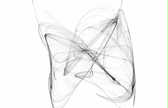

Jean Baudrillard. Jean Baudrillard (/ˌboʊdriːˈɑr/;[1] French: [ʒɑ̃ bodʁijaʁ]; 27 July 1929 – 6 March 2007) was a French sociologist, philosopher, cultural theorist, political commentator, and photographer. His work is frequently associated with postmodernism and specifically post-structuralism. Life[edit] Baudrillard was born in Reims, northeastern France, on 27 July 1929. His grandparents were peasants and his parents were civil servants. While teaching German, Baudrillard began to transfer to sociology, eventually completing his doctoral thesis Le Système des objets (The System of Objects) under the dissertation committee of Henri Lefebvre, Roland Barthes, and Pierre Bourdieu.
In 1970, Baudrillard made the first of his many trips to the United States (Aspen, Colorado), and in 1973, the first of several trips to Kyoto, Japan. In 1986 he moved to IRIS (Institut de Recherche et d'Information Socio-Économique) at the Université de Paris-IX Dauphine, where he spent the latter part of his teaching career. Gilles Deleuze. Gilles Deleuze (French: [ʒil dəløz]; 18 January 1925 – 4 November 1995) was a French philosopher who, from the early 1960s until his death, wrote influentially on philosophy, literature, film, and fine art. His most popular works were the two volumes of Capitalism and Schizophrenia: Anti-Oedipus (1972) and A Thousand Plateaus (1980), both co-written with Félix Guattari.
His metaphysical treatise Difference and Repetition (1968) is considered by many scholars to be his magnum opus.[2] Life[edit] Deleuze was born into a middle-class family in Paris and lived there for most of his life. His initial schooling was undertaken during World War II, during which time he attended the Lycée Carnot. He also spent a year in khâgne at the Lycée Henri IV. During the Nazi occupation of France, Deleuze's older brother, Georges, was arrested for his participation in the French Resistance, and died while in transit to a concentration camp.[3] In 1944, Deleuze went to study at the Sorbonne. Philosophy[edit] Ludwig Wittgenstein. Ludwig Josef Johann Wittgenstein (26 April 1889 – 29 April 1951) was an Austrian-British philosopher who worked primarily in logic, the philosophy of mathematics, the philosophy of mind, and the philosophy of language.[4] From 1939–1947, Wittgenstein taught at the University of Cambridge.[5] During his lifetime he published just one slim book, the 75-page Tractatus Logico-Philosophicus (1921), one article, one book review and a children's dictionary.[6] His voluminous manuscripts were edited and published posthumously.
Philosophical Investigations appeared as a book in 1953 and by the end of the century it was considered an important modern classic.[7] Philosopher Bertrand Russell described Wittgenstein as "the most perfect example I have ever known of genius as traditionally conceived; passionate, profound, intense, and dominating".[8] Born in Vienna into one of Europe's richest families, he inherited a large fortune from his father in 1913. Background[edit] The Wittgensteins[edit]
Carl Jung - Approaching the Unconscious. Carl Jung: Sea of Faith [FULL DOCUMENTARY]